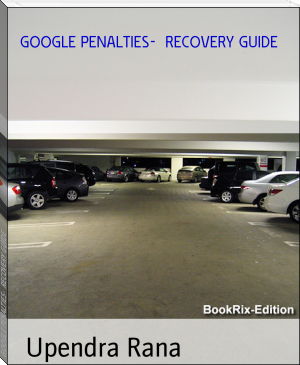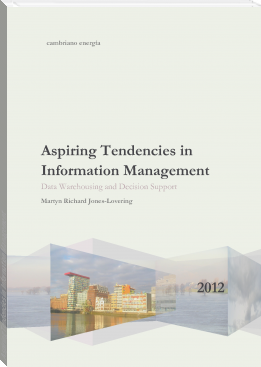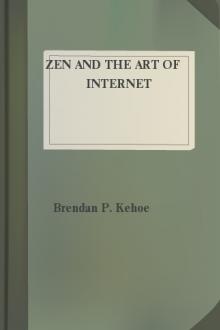GOOGLE PENALTIES- RECOVERY GUIDE, Upendra Rana [the read aloud family .TXT] 📗

- Author: Upendra Rana
Book online «GOOGLE PENALTIES- RECOVERY GUIDE, Upendra Rana [the read aloud family .TXT] 📗». Author Upendra Rana
Author ’s Note
Upendra Singh Rana obtained his BCA MCA from IME college, Sahibabad. He is an
Internet marketer, social media optimizer, guest blogger and online reputation
management. SEO is in my blood.
Introduction
Technical book writing is a simple Job. Pick up a technology that appeals you, spend
some time understanding it, browse the net for some additional information
and then keep writing till the time you do not reach the end.
I have tried to make this book different in one more way by giving personal experience
with you.
Thank you, dear reader and friend, for picking up my SEO book. Whatever I have achieved today in life is thanks to you. Here’s thanking all those who helped me with this book:
My immediate family—Shaily. My mother, Kamlesh and my father, Ranvir singh Rana. My brother and his wife, Arvind and Anjali.
My father is an inspiration and role model for me. A guy from very common family and making his name and fame at other state i.e. Arunachal Pradesh as a principal in Govt school.
Friends who make life worthwhile like Manohar, Rashmi, Shweta Himanshu & Megha. My extended family on Twitter Google plus and Facebook. When I started writing, my motives were different. I wanted to make it. I wanted to prove a point. Today, I write for different reasons. I write for change. A change in the mindset of Indian society towards SEO and SMO.
It is a lofty goal, and I am not foolish enough to think' I can ever achieve it. However, it helps to have positive intentions and a direction in life, and I am glad to have found mine.
I want to reach as many people as I can—through books, blogs, I am human; I will falter and I will have ups and downs. If possible, try to maintain your support and keep me grounded through that process, One more thing; don’t give me your admiration, Give me your love. Admiration passes, love endures. To know more about me just type my name in Google i.e.
“Upendra Rana” you will get all info related to me.
Unnatural Link
1.1. What’s an Unnatural Link about and what’s the connection with the penalties?
As indicated in the Google Webmaster Guidelines, an unnatural link is any link that intends to manipulate the PageRank or the search engine results, be it a link to your site or an outgoing link from your site. The creation of links that weren’t editorially placed or vouched for by the site’s owner on a page can be considered a violation of the Google Guidelines and can lead to a penalty.
From their statements, we infer that Google’s main concern is to keep users away from bad search experiences, providing them with the most relevant results.
The “naturalness” of a link is, up to a point, an editorial choice. It all boils down to your ability to link to a site from your site based on usefulness. For instance, you are a fan of British Airways and you choose to talk about this company on your blog, your site or on forums because you really had a good experience with this brand. You really want to tell the world what a great company they are and how their services helped you a lot in a certain situation. This is not considered a violation of Google’s Guidelines. However, if you write about British
Airways because this company promises you free flight tickets or saves you from paying taxes for your extra luggage, then we are talking about an unnatural link. (unless you mark the link with the rel=nofollow HTML attribute)
Unnatural Link Synonyms
Some people refer to unnatural links using the following synonyms:
inorganic links
toxic links
low quality links
artificial links
manually created links
deceptive links
manipulative links
impact links
1.2. Where Is the End of “Natural” and the Beginning of
“Unnatural”?
If you find it hard to draw the line between natural and unnatural in terms of links, here’s what you can do. You need to ask yourself:
“Would I still be linking to that site if the SERPs didn’t exist?”
Would I still be recommending this site/blog/company, etc. if search engines didn’t exist? If the answer to this question is yes, then we are talking about an organic or natural link. If the answer to this question is no, then that link is most likely a violation of Google’s guidelines and, therefore, is considered unnatural.
Long story short, unnatural links come down to link selling. It doesn’t matter if we’re talking about money, gifts, a massage, a 6 Pack or any sort of material compensation. It is still a sort of transaction. The same applies when we talk about excessive link exchange. It is still a sort of unnatural transaction that does not occur naturally but is artificially generated with the purpose to influence the ranking in Google.
The war against link selling is meant to maintain the competition on a level playing field, offering equal chances to all websites. You wouldn’t want somebody who just has more money to automatically be able to rank better on the search engines.
I know that as nice as this “equal chance” story may sound, AdWords still exists and, like it or not, is a kind of link selling with the difference that you get an invoice for the transaction. Without getting into ethical issues, at the end of the day, AdWords remains a Google accepted form of selling links that often brings results for those with deep pockets.
1.3. The Most Common Unnatural Link Examples
Much like the law, the “naturalness” of a link can be can be interpreted in our favor. For instance, excessive link exchanges or linking to low quality sites are practices that are in disagreement with Google’s Guidelines. But how much is excessive? How low should the quality of a site be? In order to avoid this kind of ambiguities, we will give you some examples of common links that have an unnatural flavor, according to Google’s Guidelines:
Any link that is generated due to a payment in money
On the surface, things seem pretty clear here: if you offer money in exchange for placing your link on a site, that link will be considered unnatural. However, things are a little more complicated than this.
Let’s say you organize a charity event and you want to link to a company that donated an amount of money to help you out with the event. Is it considered to be an unnatural link? Well, it depends. If that company gives donations in exchange for links and uses these actions as a link building strategy, then it is surely a violation of the “Guidelines”.
If the donor company has just a couple of links thanks to some sponsorship campaign it did, then it is very likely they are organically generated.
Any link that is generated due to an exchange of goods and services
If you receive or give any good or service in return for a link, then that link is considered to be unnatural. Let’s say that a company selling frying pans sends one of their products to 100 cooking bloggers, encouraging them to write about the frying pan received as a gift. Will Google consider the links that the bloggers will generate as being unnatural? It will surely do. But, if the frying pans company wants to stay on Google’s good side, they have to prove that they didn’t have the intention of manipulating the PageRank. Thereby, they should ask bloggers to mark the links as no-follow so they cannot pass PageRan
Links that are widely distributed in the Footer of a page or on the
If in your blogroll you are linking to pages relevant for your content, then those links are considered to be natural. But if you have 100 links on your page and more than half of them can be found in the blogroll, then it is clear that the situation is not “natural”.
BlogrollIf for blogrolls things are pretty clear, when it comes to links
that appear in footers, things get a bit complicated. Let’s start with blogrolls:
When it comes to links distributed in footers, Google is being a bit ambivalent. Let’s say you are a web design company and you place a link to your webpage in the footer of the designed sites. Google might consider this action as OK but they might also considered it unnatural, claiming that it is a self-made link or a link that is generated due to an exchange of service. How does Google decide whether this kind of links are natural or unnatural? Depending on the intent. It should be clear for Google that the webmaster is linking to a site on purpose and not because it was required to. OK, you’ll say.
And how can Google accurately identify the intent? Well, I think that’s something only Google knows.
Any link that is a result of a “link to me and I’ll link to you” campaign
Let’s say that you are the webmaster of a financial audit site. On your page you have a section where you recommend several accounts, attorneys and tax experts. Maybe some of those you recommended also linked to our page. Is this considered “excessive link exchanges”? Most likely no. But if on your website you have a list with hundreds of recommendation from a wide geographical area, and most of your
“recommendations” also link to your page, then it is very likely that you’ll receive a penalty from the “Google Penguin”.
Links on low-quality web-directories or bookmark sites
This looks quite clear also, doesn’t it? If you have many links on low-quality web directories, they are most likely to be considered unnatural. But then again, the question arises:
Who draws the line between low and high quality? Google, of course. We are playing in its yard.
And how does the big “G” decide on the quality of a web directory? Most likely, a web directory is considered to have a high quality if it has some sort of human interaction, such as an editorial process. In this case not all sites can auto-submit their links and there is a whole process whereby the web-directory decides the relevancy of a certain site in list with links.
Links with optimized anchor text (articles, press releases, etc.)
These kinds of links are very common and the digital world is full of articles stuffed with anchor text. I’ll go back to the frying pan company to give





Comments (0)